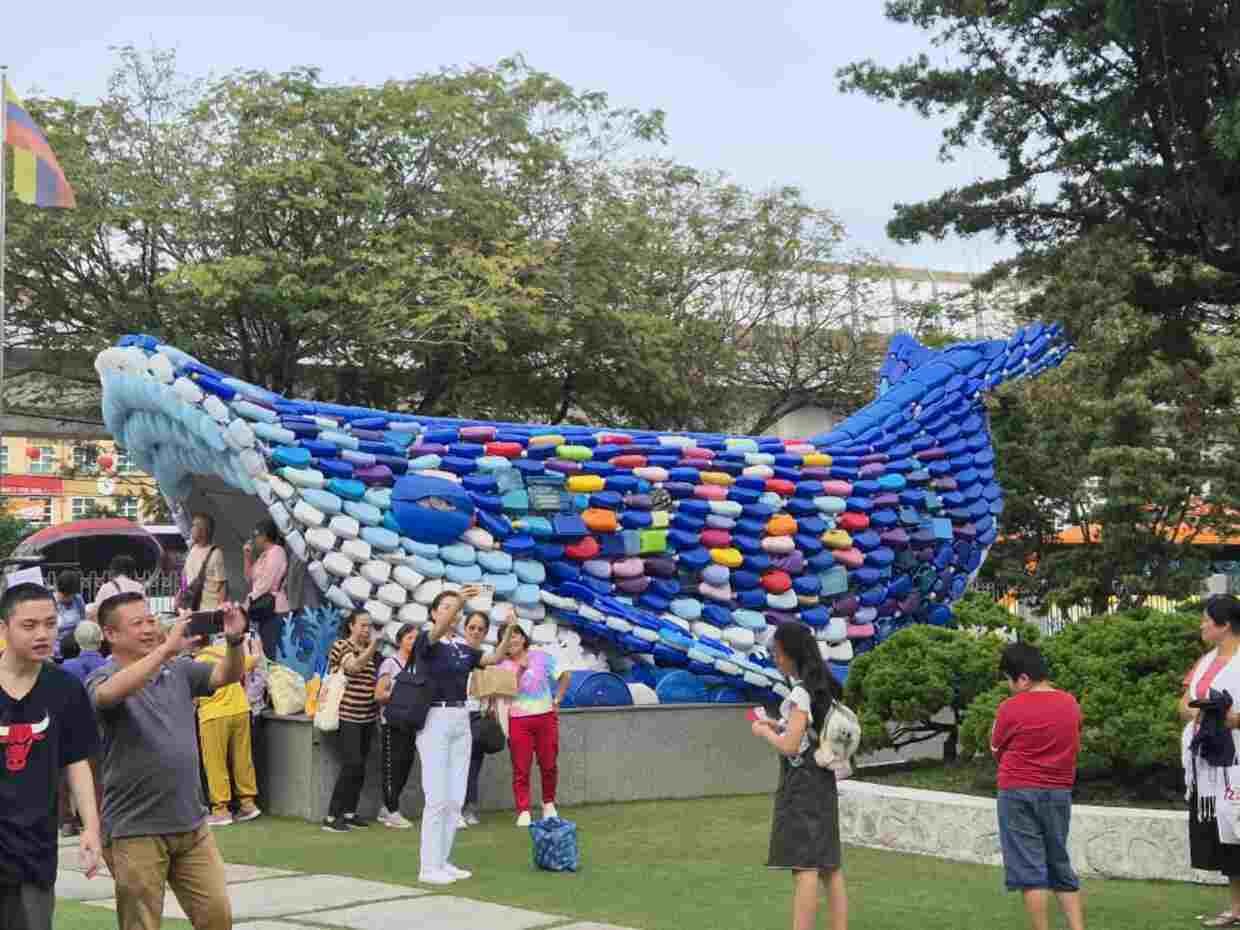(writeup provided by Anthony SB Thanasayan)
A first-ever dog awareness session was organised by the Canine Advisory Team (CAT) of the Klang Town Council (MPK) last Friday.
Held at the Local Council’s Headquarters in Jalan Perbandaran Klang, it proved to be a big success.
It involved the entire team of dogcatchers from two local councils in Selangor that met up with animal welfare and rights nongovernmental organisations in order to come up with better and humane methods in controlling the population of stray dogs in towns and cities.
The discussions were so absorbing that no one wanted to call the morning session a day even when the time started running into lunch hour!
Finally it was Zulikifli Abbas, the Klang Council’s Health Director who reluctantly brought the half-day session to a close.
“Thank you all for participating in an extremely fruitful event that has opened up our minds with a lot of ideas for all of us”, he said, beaming from ear to ear, to about 50 dogcatchers and staff from the vector units of the Petaling Jaya City Council (MBPJ) and MPK.
The Klang Council which organised the event had extended an invitation also to the Selayang Municipality (MPS) but they were unable to make it at the last minute.
MPS incidentally does not have dogcatchers among its staff. They hire outsiders instead to perform the task.
As chairperson of MPK CAT, I kicked off the session by praising the role of dogcatchers. I reiterated that their mission is a necessary one in virtually every country of the world.
“However, we in CAT acknowledge that your job as dogcatchers is often a ‘dirty one’ – something that no one wants to do but still, someone has to do it. We realize the fact that you guys are also the unsung heroes even though you risk getting injured or bitten during the line of your duties.
“You are rarely appreciated for your role and sometimes even get blocked or attacked by residents when trying to accomplish your noble mission. However, I am pleased to say that today’s session was specially held in tribute to the work that you guys do.
“We are here today to listen to your feelings and experiences. We would like to know about your problems and how we can help you so that you can do your jobs more effectively,” I said.
After my address, the Health Director went on to explain that the control of the population of dogs was necessary because of public health demand.
Zulkifli Abbas explained that the local councils are answerable to the taxpayers.
“We are bound to respond to complaints made by them in relation to strays being a nuisance and a health hazard in their neighborhood,” he said.
“The majority of canines that are caught are a direct result of complaints made by residents,” he added.
Dr Thiba Rajoo from the Department of Veterinary Services (DVS) provided a wealth of information from her professional position.
She stressed on the health rights and needs of animals.
She gave the lowdown on the five fundamental freedoms of dogs.
“They must be observed at all times from the moment the canines are caught in the streets to their journey to the pound and until they depart either through adoptions or put-downs,” she pointed out as the audience listened with rapt attention.
A special video on service dogs and animal-assisted therapy for the disabled was presented by Petpositive, which was one of the two NGOs present at the meeting.
The purpose of the video was to educate the participants on the many useful roles of canines.
“If there was early intervention, many of the dogs that end up as strays could have helped humans in similar ways too,” said Thanasayan who presented the video.
SPCA Selangor’s Cunera Kimlon (the other NGO representative) gave an most insightful talk on animal cruelty.
The animal-inspector went through some important details of the handling aspects of dogs and cats.
She provided some extremely useful tips on how to handle animals humanely which the participants eagerly lapped up.
One could clearly see that quite a bit of the information shared that day were not known to the dogcatchers previously.
Adrian Johnson Lim, a private animal control professional who is Australia-trained, was also invited to attend the session.
He showed videos of how to approach stray dogs in a friendly rather than an aggressive way.
Using chicken meat as bait, we saw some of the the strays actually running towards his animal control team rather than taking off in the other direction.
Lim’s team also used a variety of equipment in trapping dogs for different situations.
CAT was not the only “experts” who were speakers at the stray-awareness session that morning.
The dogcatchers themselves took the opportunity to share their successes – as well as their their failures – in trying to do their jobs which made the session even more interesting.
The issue of Muslims and dogs inevitably came up.
Whilst all the dogcatchers in MPK are persons of Indian descent, MBPJ has three officers who are Muslims.
One of them shared with us how difficult it was at first when he started out as a dogcatcher.
“Not only was I looked down by the residents for catching canines but my friends and others were uncomfortable with the idea of me performing my job as a Muslim,” he said.
“However, now I have come to terms with it and I know that I have a very special purpose in helping both the city of PJ as well as the many unwanted and often abused animals that we effectively take off the streets.”
The young man’s view was shared by most of the other dogcatchers.
They all said that from their experience, a life as a stray was not right nor fit for any animal.
“The majority of the dogs that we come across are abused dogs; as well as extremely sick animals,” said one dogcatcher who received numerous nods from the others.
“Life for the strays is a living hell; no one wants to really care for them – even those who profess to feed them.
“It appears that some people want the ‘feel-good’ factor of feeding stray animals without taking any responsibility for the animal such as taking it to the vet for treatment when the time comes to do so.
“Thus, many of us feel it is better to take these dogs out of their predicament and humanely put them down instead of allowing them to suffer in the cold and uncaring streets,” he remarked.
Jessica Low, a volunteer who represented Petpositive at the meeting was all praise for the session at the end of the day.
She commented:
“Whether (all) dog-lovers (realise) it or not, change IS happening – thanks to CAT!
“(The session) was a (true) learning (experience for all).”
The dogcatchers came away obviously having a better understanding of their roles – as well as to their solemn responsibilities for the animals under their care.
“Please don’t refer to me a ‘dogcatcher’ anymore but as an “animal-control officer” from now on,” one of them quipped to me as he left the room.
The special MPK CAT session is the first of many more training and a heightened sensitivity on animal rights and welfare events to come for animal-control officers.
The writer is chairperson, Canine Advisory Team (CAT), Majlis Perbandaran Klang.











